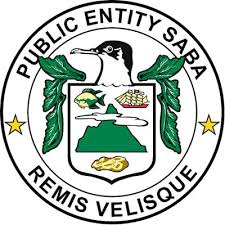Cleaner Coasts, Stronger Communities: Join Saba’s Turning Tides Movement
- Emily

- Nov 24, 2025
- 3 min read

Saba’s coastline is a vital part of the island’s identity—home to unique wildlife, important ecosystems, and countless community memories. But like many coastal areas around the world, it’s increasingly impacted by one persistent problem: plastic pollution.
To help address this, the Sea & Learn Foundation launched Turning Tides, a new initiative focused on quarterly cleanups and research in January 2025. Held at Tent Beach and Spring Bay, these cleanups will take place every January, April, July, and October—and they’re about more than just removing litter. They’re part of a broader effort to collect data, raise awareness, and protect Saba’s shores for the long term.
Why Plastic Pollution Matters

By now, most of us have seen that video—the one where scientists pull a plastic straw from the nose of a sea turtle. It’s hard to forget the turtle’s pain, the helplessness of the moment, and the sharp reminder of how far our waste can travel. It’s just one heartbreaking example of the millions of animals affected by marine litter every year.
Plastic doesn’t go away. It breaks down into smaller pieces—microplastics—which are even more insidious. They’re eaten by fish, birds, and even plankton, working their way up the food chain and, ultimately, onto our plates. They’ve been found in drinking water, sea salt, and even human blood.
For islands like Saba, the danger is magnified. Our marine life, fisheries, and tourism depend on healthy, clean coastal ecosystems. A single discarded bottle or piece of styrofoam might not seem like much—but multiply that by millions, and it becomes a crisis.
What Makes Turning Tides Different?

Turning Tides isn’t just about cleaning up—it’s about understanding what’s out there and how it’s changing. The Sea & Learn Foundation is using a standardized scientific monitoring protocol developed by the OSPAR Convention—a method also used on Bonaire and across Europe to track coastal pollution over time. Each cleanup involves surveying a set stretch of coastline, collecting data on the types and quantities of litter found. This information feeds into a global dataset that scientists and policymakers use to track trends, raise awareness, and shape smarter environmental policies. SLF is also collaborating with Clean Coast Bonaire to strengthen regional efforts.
So when you join a Turning Tides cleanup, you’re not just tidying a beach—you’re helping build a body of research that informs change on a global level.
Real Progress, Real People

Even in its early stages, Turning Tides has already made a splash. This year, volunteers have pulled over 62 kilograms of trash from just 50 meters of Spring Bay shoreline. That included styrofoam, bottle caps, a rogue flip-flop or two—and, for some reason, a paint roller. At Tent Beach, cleanups still yielded 24 kilograms of waste, including a remote control.But it’s not all weird finds—there’s real impact here, too. When the SLF team returned to Tent Beach a few months later, they found significantly less trash in the same area. That means the cleanups are working—and that together, we’re making a difference.
Want to Help? Join us for our upcoming cleanups in January 2026!

Gloves, reusable bags, and refreshments are provided—just bring your energy, your friends, and a love for Saba’s natural beauty. FREE sun shirts also given to volunteers who help out once at Spring Bay or 3x at Tent Beach!
Plastic pollution is a global problem, but the solutions start small—right here, with you, and with the next tide. Whether you’re a student, a diver, a hiker, or just someone who cares, Turning Tides invites you to make a difference.
Contact us to join: info@seaandlearn.org
Supported by NEPP: protecting nature, reviving resources, sustaining our islands.








Comments